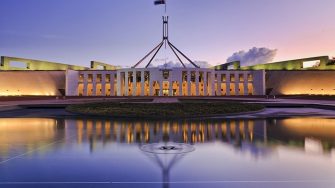Kaldor Centre urges Senate to reject ‘overly broad’ Bill
The Senate should reject the Migration Amendment (Removal and Other Measures) Bill 2024 in its entirety, the Kaldor Centre has noted in its submission to a Senate inquiry into the Bill.
The Senate should reject the Migration Amendment (Removal and Other Measures) Bill 2024 in its entirety, the Kaldor Centre has noted in its submission to a Senate inquiry into the Bill.

The Bill in question was passed by the House of Representatives in March but was blocked in the Senate and referred to the Senate’s Legal and Constitutional Committee. That Committee will hold a hearing on the Bill on Monday 15 April, and report to the Senate when parliament returns on 7 May.
The Kaldor Centre argues that the Bill gives the Minister extraordinarily broad and ill-defined powers. These powers would make a person’s failure to cooperate with the government’s efforts to remove them a criminal offence; expand the Minister’s powers to reverse protection findings; and potentially see entire countries subject to travel bans, prohibiting their citizens from coming to Australia for holidays, work or education (in an attempt to pressure those countries to accept involuntary returns).
The Kaldor Centre also raises concerns about the speed and lack of consultation involved in the development of the Bill. ‘We share the view of the Senate Standing Committee for the Scrutiny of Bills that “legislation, particularly legislation that may trespass on personal rights and liberties, should be subject to a high level of parliamentary scrutiny”,’ the Centre submission notes.
‘Truncated parliamentary processes which limit parliamentary scrutiny and debate are not appropriate for bills such as this one which seriously impact on personal rights and liberties,’ the submissions says.
The Kaldor Centre submission is available to read in full.
For more information, contact the Kaldor Centre for International Refugee Law.